The fourth installment of our 10-part series describing newsworthy events in Thailand over the past 50 years begins with the year 1982.
1982 saw the opening of Central Plaza Lat Phrao shopping complex. The Thai Trade Union Congress was founded and Thammasat University appointed Professor Nongyao Chaise as its first female rector. The Communications Authority of Thailand announced the arrival of a new postal system.
January
• Thousands of Thai soldiers, police and rangers supported by planes and helicopters converged on the base of drug lord Khun Sa, dubbed the ‘Opium King’, at Ban Hin Taek in Chiang Rai province. The raid followed intelligence reports that a 200-mule opium caravan was sighted near the
Thai-Burma border. It was the largest operation to date against the drug lord backed by Shan United Army.
• The old Sunday market near Sanam Luang was replaced by a new weekend market near Chatuchak Park despite numerous protests by vendors against the relocation. The move had been planned since 1978 but was delayed by the protests. In the end a total of 979 vendors moved to the new location and began selling the same goods they had sold at Sanam Luang. Chatuchak Market director Witoonphant Wannachamrae said that the new market was much cleaner than the muddy mess at Sanam Luang.
• In its first prisoner-exchange treaty with another country, Thailand agreed to swap inmates with the United States. The repatriated American prisoners would continue to serve sentences handed down by the Thai courts in the US and be eligible for parole or amnesty as granted by the US judicial system. As for Thai prisoners repatriated from the US, it was reported that they could be freed under an amnesty programme.
January
• Thousands of Thai soldiers, police and rangers supported by planes and helicopters converged on the base of drug lord Khun Sa, dubbed the ‘Opium King’, at Ban Hin Taek in Chiang Rai province. The raid followed intelligence reports that a 200-mule opium caravan was sighted near the
Thai-Burma border. It was the largest operation to date against the drug lord backed by Shan United Army.
• The old Sunday market near Sanam Luang was replaced by a new weekend market near Chatuchak Park despite numerous protests by vendors against the relocation. The move had been planned since 1978 but was delayed by the protests. In the end a total of 979 vendors moved to the new location and began selling the same goods they had sold at Sanam Luang. Chatuchak Market director Witoonphant Wannachamrae said that the new market was much cleaner than the muddy mess at Sanam Luang.
• In its first prisoner-exchange treaty with another country, Thailand agreed to swap inmates with the United States. The repatriated American prisoners would continue to serve sentences handed down by the Thai courts in the US and be eligible for parole or amnesty as granted by the US judicial system. As for Thai prisoners repatriated from the US, it was reported that they could be freed under an amnesty programme.
February
• Bangkok Bank, the largest commercial bank in Southeast Asia, opened its 32- storey headquarters on Silom Road. At 126 metres, it was the tallest building in Bangkok at the time. About 4,000 guests attended the opening ceremony hosted by the Bank chairman. Afterward a large Royal Garuda was unveiled. It took five years and more than one billion baht to construct the building.
March
• Six people were killed and more than 100 injured when southern communists detonated a car bomb that tore open a provincial hall in Surat Thani province. The powerful explosion flattened walls and destroyed the roof of the hall and damaged other buildings in the vicinity.
April
• The nation celebrated the 200th anniversary of the Chakri dynasty with Bangkok as the country’s capital. The Thai King and Queen and other members of the Royal Family led a flotilla of 51 royal barges down the Chao Phraya River. The event was witnessed by hundreds of thousands of people gathered on the banks of the river.
• Hand grenades were thrown into the ring during an event at crowded Lumpini Boxing Stadium on Rama IV Road. The target of the attack was apparently Klaew Thanikul, a Thai-Chinese entrepreneur and boxing promoter who allegedly was involved in gambling, prostitution, narcotics and human trafficking. Klaew was at the stadium but was unhurt. After the explosions his apparently drunken bodyguards opened fire on the crowd with submachine guns, killing four people and injuring 67. The grenades maimed the manager of a fighter on the card that night. Both his legs had to be amputated. Klaew became famous as the first promoter to successfully combine Muay Thai with the more lucrative Western style of boxing.
• Bangkok Bank, the largest commercial bank in Southeast Asia, opened its 32- storey headquarters on Silom Road. At 126 metres, it was the tallest building in Bangkok at the time. About 4,000 guests attended the opening ceremony hosted by the Bank chairman. Afterward a large Royal Garuda was unveiled. It took five years and more than one billion baht to construct the building.
March
• Six people were killed and more than 100 injured when southern communists detonated a car bomb that tore open a provincial hall in Surat Thani province. The powerful explosion flattened walls and destroyed the roof of the hall and damaged other buildings in the vicinity.
April
• The nation celebrated the 200th anniversary of the Chakri dynasty with Bangkok as the country’s capital. The Thai King and Queen and other members of the Royal Family led a flotilla of 51 royal barges down the Chao Phraya River. The event was witnessed by hundreds of thousands of people gathered on the banks of the river.
• Hand grenades were thrown into the ring during an event at crowded Lumpini Boxing Stadium on Rama IV Road. The target of the attack was apparently Klaew Thanikul, a Thai-Chinese entrepreneur and boxing promoter who allegedly was involved in gambling, prostitution, narcotics and human trafficking. Klaew was at the stadium but was unhurt. After the explosions his apparently drunken bodyguards opened fire on the crowd with submachine guns, killing four people and injuring 67. The grenades maimed the manager of a fighter on the card that night. Both his legs had to be amputated. Klaew became famous as the first promoter to successfully combine Muay Thai with the more lucrative Western style of boxing.
May
• The King, Queen and Princes Maha Chakri Sirindhorn presided over the ceremony to open Taksin Bridge, also known as Sathorn Bridge. After the ceremony the royals drove across the bridge in their motorcade. Construction of the bridge over the Chao Phraya River started in February 1979.
• Around 500 Communist Party of Thailand (CPT) insurgents operating in rural areas of Loei, Phitsanulok and Phetchabun provinces surrendered to the Thai government. CPT leaders said government forces had inflicted heavy casualties on them and more insurgents would surrender.
July
• Thailand formally recognised the anti-Vietnamese Coalition Government of the Democratic Kampuchea. The leaders of the Khmer People’s National Liberation Front, Prince Norodom Sihanouk and Prime Minister Son Sann, were honoured with a banquet by the Thai Minister of Foreign Affairs. It was the first trip by Prince Sihanouk to Thailand since 1953 after years of animosity.
• Prime Minister Prem Tinsulanonda escaped an assassination attempt when an M-72 rocket was fired at him. Prem was at the Lopburi Artillery Centre to unveil a statue of former Prime Minister Phibun Songkhram when the attack occurred. The rocket hit a tree and Prem was unharmed. Five soldiers were arrested and charged with attempted assassination and illegal possession of war weapons.
• A new government policy gave more freedom to students, the media and political factions, including communists, in order to encourage and promote democratization and weaken the communist insurgency. The policy emphasized political strategies over military force and guaranteed freedom to former insurgents who had recently returned from the jungles.
August
• Another assassination attempt was made on PM Prem when a hand grenade was thrown into his house from a nearby army club. The explosion caused some structural damage to the building but no one was hurt. Asked about the attack, Prem said: “Anyone who faced such an experience would be shocked.”
September
• Mukdahan was designated as the 73rd Thai province. Before that this new northeastern province was a district of Nakhon Phanom province. The new governor of Mukdahan promised to focus on development and the suppression of insurgency and crime.
• The King, Queen and Princes Maha Chakri Sirindhorn presided over the ceremony to open Taksin Bridge, also known as Sathorn Bridge. After the ceremony the royals drove across the bridge in their motorcade. Construction of the bridge over the Chao Phraya River started in February 1979.
• Around 500 Communist Party of Thailand (CPT) insurgents operating in rural areas of Loei, Phitsanulok and Phetchabun provinces surrendered to the Thai government. CPT leaders said government forces had inflicted heavy casualties on them and more insurgents would surrender.
July
• Thailand formally recognised the anti-Vietnamese Coalition Government of the Democratic Kampuchea. The leaders of the Khmer People’s National Liberation Front, Prince Norodom Sihanouk and Prime Minister Son Sann, were honoured with a banquet by the Thai Minister of Foreign Affairs. It was the first trip by Prince Sihanouk to Thailand since 1953 after years of animosity.
• Prime Minister Prem Tinsulanonda escaped an assassination attempt when an M-72 rocket was fired at him. Prem was at the Lopburi Artillery Centre to unveil a statue of former Prime Minister Phibun Songkhram when the attack occurred. The rocket hit a tree and Prem was unharmed. Five soldiers were arrested and charged with attempted assassination and illegal possession of war weapons.
• A new government policy gave more freedom to students, the media and political factions, including communists, in order to encourage and promote democratization and weaken the communist insurgency. The policy emphasized political strategies over military force and guaranteed freedom to former insurgents who had recently returned from the jungles.
August
• Another assassination attempt was made on PM Prem when a hand grenade was thrown into his house from a nearby army club. The explosion caused some structural damage to the building but no one was hurt. Asked about the attack, Prem said: “Anyone who faced such an experience would be shocked.”
September
• Mukdahan was designated as the 73rd Thai province. Before that this new northeastern province was a district of Nakhon Phanom province. The new governor of Mukdahan promised to focus on development and the suppression of insurgency and crime.
December
• A powerful bomb exploded in the office of former Iraqi consul and prominent Thai businessman Lek Nana in Bangkok’s Chinatown. Police bomb disposal expert Police Lieutenant Colonel Surat Sumanan was killed when he tried to defuse the bomb, which was placed in a briefcase. At least 20 other people were injured. Mr Nana was not in the office at the time. The blast damaged the building and the fire that followed damaged five other buildings. Nana’s office had formerly been the Iraqi consulate. The bombing was suspected to have been connected to the ongoing Iran-Iraq War. In the same year Mr Nana became secretary general of the Democrat Party under party leader Bhichai Rattakul.
• A powerful bomb exploded in the office of former Iraqi consul and prominent Thai businessman Lek Nana in Bangkok’s Chinatown. Police bomb disposal expert Police Lieutenant Colonel Surat Sumanan was killed when he tried to defuse the bomb, which was placed in a briefcase. At least 20 other people were injured. Mr Nana was not in the office at the time. The blast damaged the building and the fire that followed damaged five other buildings. Nana’s office had formerly been the Iraqi consulate. The bombing was suspected to have been connected to the ongoing Iran-Iraq War. In the same year Mr Nana became secretary general of the Democrat Party under party leader Bhichai Rattakul.
1983 was the year the American School of Bangkok was founded, along with entertainment giant GMM Grammy and Land and Houses, a property development company. A special operations hostage rescue and counter-terrorism unit of the Royal Thai Police known as Naraesuan 261was launched.
|
January
• Three Thai men armed with knives boarded a Thai Airways plane and took seven passengers and four crew hostage at Lampang airport and demanded to be flown to Chiang Rai. They were told the plane had to be refueled in Chiang Mai. After the plane landed at Chiang Mai two pilots jumped onto the tarmac and two flight attendants and one passenger escaped through the rear door of the plane. The hijackers continued to hold the other passengers hostage and demanded a new plane and a new pilot, parachutes and 300,000 baht. As their deadline expired, the hijackers seized a pickup truck and drove away with the hostages, who were later released unharmed. Police arrested a man said to be the mastermind a week later. He said he wanted to hijack the plane because he had been unfairly treated by colleagues and wanted to prove he could do whatever he wanted. |
• The first 3,500 barrels of oil from Sirikit oilfield at Lan Krabue in Kamphaeng Phet province arrived at the Bang Chak refinery in Bangkok in 19 tank carriages. Authorities said the locally produced and refined oil would reduce Thailand’s reliance on imports and save hundreds of millions of baht in foreign exchange.
March
• The first ATM machine in Thailand was installed by Siam Commercial Bank beginning a new era in personal banking in Thailand.
• It was revealed that famous movie-star Petchara Chaowarat was almost blind. She made dozens of movies during a career that spanned two decades. Petchara suffered from cataracts caused by the glare from light reflectors in front of cameras. In 1960 she made her first movie, Love Diary of Pimchawee, and instantly became a major star.
• Parliament was surprisingly dissolved when PM Prem called for a general election to be held April 18. The election was called amid tensions over a divisive military-backed constitutional amendment that Parliament had rejected.
April
• In the general election three coalition partners won 221 of the 324 seats in the House of Representatives: Social Action Party led by MR Kukrit Pramoj won 93 seats; Chart Thai Party of Major General Praman Adireksan won 72 seats and Democrat Party led by Bhichit Rattakul won 50 seats. After the election PM Prem announced he would quit politics but changed his mind and agreed to serve another term.
• Under new legislation the age at which it became mandatory to carry a Thai ID card was reduced from 17 to 15. Under the new legislation, Thai nationals between the ages of 15 and 70 were required to carry their ID cards on them at all times. The fine for not carrying ID was 200 baht and this was also applied for not renewing the ID. Any person carrying or trying to obtain a counterfeit ID was liable to five years imprisonment and a 100,000 baht fine.
• What was formerly one of the largest communist base in the country, Phu Hin Rong Kla (Loei/Phetchabun/Phitsanulok), became Thailand’s 48th national park in a ceremony presided over by Commander-in-Chief of the Royal Thai Army General Arthit Kamlang-ek.
May
• Filming for ‘The Killing Fields’ began, transforming Tha Din Daeng Road in Thonburi and part of Nakhon Pathom province into movie sets. The film, which was nominated for seven Academy Awards and won three, was shot entirely in Thailand in Bangkok, Phuket, Cha-am, Hua Hin, Phi Mai Historical Park and Khao Yai National Park. The film is based on a New York Times reporter’s search for a Kampuchean friend and colleague who he last saw in Phnom Penh as it was being overtaken by the Khmer Rouge in 1975.
• An electric, two-seater car developed by two engineers from King’s Mongut’s Institute of Technology was tested on Silom and Rama IV roads in Bangkok. Maximum speed was reportedly 50km/h and the car could travel 80km on one battery charge, which one engineer claimed took only 20 baht worth of electricity.
• A government source said that Thailand’s strategic location in the region and ‘security loopholes’ were turning the country into a centre for espionage. The source said that some countries were using their embassies and offices for trade, tourism and airlines for intelligence-gathering purposes. A counter-intelligence report said that 52 Soviet spies, including KGB agents, had formed a network in Thailand. It was reported in September 1983 that 33 agents attached to the Soviet embassy on Sathorn Road, the Soviet trade mission and Aeroflot had quietly left Thailand.
August
• Bangkok’s largest garment and textile market was ravaged by a fire that destroyed about 300 stalls and 10 shop houses in the Pahurat area. One fireman was injured. The damage was estimated at 50 million baht. About 35 fire engines were called to put out the blaze.
• A Thai man convicted of forging letters of guarantee from banks and using them to obtain temporary stay permits for 1,086 aliens was sentenced to 2,166 years imprisonment. However, under the new Criminal Code Amendment Act his imprisonment could be no more than 20 years.
March
• The first ATM machine in Thailand was installed by Siam Commercial Bank beginning a new era in personal banking in Thailand.
• It was revealed that famous movie-star Petchara Chaowarat was almost blind. She made dozens of movies during a career that spanned two decades. Petchara suffered from cataracts caused by the glare from light reflectors in front of cameras. In 1960 she made her first movie, Love Diary of Pimchawee, and instantly became a major star.
• Parliament was surprisingly dissolved when PM Prem called for a general election to be held April 18. The election was called amid tensions over a divisive military-backed constitutional amendment that Parliament had rejected.
April
• In the general election three coalition partners won 221 of the 324 seats in the House of Representatives: Social Action Party led by MR Kukrit Pramoj won 93 seats; Chart Thai Party of Major General Praman Adireksan won 72 seats and Democrat Party led by Bhichit Rattakul won 50 seats. After the election PM Prem announced he would quit politics but changed his mind and agreed to serve another term.
• Under new legislation the age at which it became mandatory to carry a Thai ID card was reduced from 17 to 15. Under the new legislation, Thai nationals between the ages of 15 and 70 were required to carry their ID cards on them at all times. The fine for not carrying ID was 200 baht and this was also applied for not renewing the ID. Any person carrying or trying to obtain a counterfeit ID was liable to five years imprisonment and a 100,000 baht fine.
• What was formerly one of the largest communist base in the country, Phu Hin Rong Kla (Loei/Phetchabun/Phitsanulok), became Thailand’s 48th national park in a ceremony presided over by Commander-in-Chief of the Royal Thai Army General Arthit Kamlang-ek.
May
• Filming for ‘The Killing Fields’ began, transforming Tha Din Daeng Road in Thonburi and part of Nakhon Pathom province into movie sets. The film, which was nominated for seven Academy Awards and won three, was shot entirely in Thailand in Bangkok, Phuket, Cha-am, Hua Hin, Phi Mai Historical Park and Khao Yai National Park. The film is based on a New York Times reporter’s search for a Kampuchean friend and colleague who he last saw in Phnom Penh as it was being overtaken by the Khmer Rouge in 1975.
• An electric, two-seater car developed by two engineers from King’s Mongut’s Institute of Technology was tested on Silom and Rama IV roads in Bangkok. Maximum speed was reportedly 50km/h and the car could travel 80km on one battery charge, which one engineer claimed took only 20 baht worth of electricity.
• A government source said that Thailand’s strategic location in the region and ‘security loopholes’ were turning the country into a centre for espionage. The source said that some countries were using their embassies and offices for trade, tourism and airlines for intelligence-gathering purposes. A counter-intelligence report said that 52 Soviet spies, including KGB agents, had formed a network in Thailand. It was reported in September 1983 that 33 agents attached to the Soviet embassy on Sathorn Road, the Soviet trade mission and Aeroflot had quietly left Thailand.
August
• Bangkok’s largest garment and textile market was ravaged by a fire that destroyed about 300 stalls and 10 shop houses in the Pahurat area. One fireman was injured. The damage was estimated at 50 million baht. About 35 fire engines were called to put out the blaze.
• A Thai man convicted of forging letters of guarantee from banks and using them to obtain temporary stay permits for 1,086 aliens was sentenced to 2,166 years imprisonment. However, under the new Criminal Code Amendment Act his imprisonment could be no more than 20 years.
|
October
• Floods and storms triggered by tropical depressions Herbert and Kim caused widespread destruction across 42 provinces. Forty two people were killed and property damage was estimated at 625 million baht. The storms hit the Central, Northeast and Eastern regions of the country. About 5,000 houses, hundreds of schools and temples, infrastructure and crops were inundated. Bangkok was paralyzed as many roads were flooded for several days. November • Boxer Payao Poontarat, 27, a native of Prachuap Khiri Khan province, was crowned World Boxing Council super flyweight champion after he defeated Rafael Orono of Venezuela in a split decision. The fight took place in Pattaya. Payao started out as a Muay Thai boxer and later switched to international-style boxing. December • More than 5,000 communist sympathizers laid down their weapons during a ceremony presided over by Supreme Commander Gen Arthit. About 30,000 locals witnessed the ceremony in Nan. |
|
1984 is the year Yanhee International Hospital came on the scene offering cosmetic treatments and procedures; the Mae La refugee camp was established in Tha Song Yang district of Tak province; and River City Bangkok shopping centre was opened for business. For the fourth year in a row the Oriental Hotel was voted best hotel in the World by Institutional Investor magazine.
February • The Crime Suppression Police began using four newly installed computers to store data on criminals and suspects. The computers had space to store data on at least 100,000 individuals. • Bangkok was plunged into even more traffic chaos than usual on February 3 after the government introduced a new one-way system in the city centre. Traffic jams started in the morning and continued into the night as police tried desperately to re-direct confused motorists. The chaos continued for some days. After two weeks the government admitted the new system was a failure. March • The Thai military captured 40 Vietnamese troops in Si Saket province bordering Kampuchea after they entered Thailand while chasing Khmer resistance fighters. The incident was not the first time Vietnamese troops had intruded on Thai soil. |
April
• More than 80,000 people fled Kampuchea and sought safety at refugee camps in Thailand to escape violence from a dry-season offensive by Vietnamese troops against Kampuchean nationalists.
• A plane taking off from Bangkok touched down in Krabi for the first time at the southern coastal province’s new airport. Hundreds of people were on hand, including Krabi mayor Chuan Phukaoluan, who said the flight marked a major step to promote tourism and attract investors.
May
• Pope John Paul II visited Thailand and met with the King and Queen. A mass held at National Stadium in Bangkok was attended by about 45,000 Catholics and another 40,000 attended mass at St. Joseph’s College in Nakhon Pathom.
• Queen Rambhai Barni, the widow of King Rama VII, died of heart failure at Sukhothai Palace in Samsen. She was 80 years old. Her body was moved to the Grand Palace for the bathing rite and a mourning period of 100 days began.
July
• American journalist and war correspondent Alan Dawson was expelled from Thailand. The government claimed that he had written articles detrimental to Thailand without identifying which were offensive. Dawson was a passenger on the last plane leaving Saigon after it fell to the communists.
• Nineteen people were killed and another 46 injured when a crowd stampeded at a charity event at a Chinese temple in Thonburi. The tragedy happened after about 4,000 people packed narrow Soi Sula leading to the temple some hours before the handout of four kilogrammes of rice and other items. Most of those killed were children.
• More than 80,000 people fled Kampuchea and sought safety at refugee camps in Thailand to escape violence from a dry-season offensive by Vietnamese troops against Kampuchean nationalists.
• A plane taking off from Bangkok touched down in Krabi for the first time at the southern coastal province’s new airport. Hundreds of people were on hand, including Krabi mayor Chuan Phukaoluan, who said the flight marked a major step to promote tourism and attract investors.
May
• Pope John Paul II visited Thailand and met with the King and Queen. A mass held at National Stadium in Bangkok was attended by about 45,000 Catholics and another 40,000 attended mass at St. Joseph’s College in Nakhon Pathom.
• Queen Rambhai Barni, the widow of King Rama VII, died of heart failure at Sukhothai Palace in Samsen. She was 80 years old. Her body was moved to the Grand Palace for the bathing rite and a mourning period of 100 days began.
July
• American journalist and war correspondent Alan Dawson was expelled from Thailand. The government claimed that he had written articles detrimental to Thailand without identifying which were offensive. Dawson was a passenger on the last plane leaving Saigon after it fell to the communists.
• Nineteen people were killed and another 46 injured when a crowd stampeded at a charity event at a Chinese temple in Thonburi. The tragedy happened after about 4,000 people packed narrow Soi Sula leading to the temple some hours before the handout of four kilogrammes of rice and other items. Most of those killed were children.
|
August
• Well-known lawyer and human rights activist Thongbai Thongpao was named winner of the 1984 Ramon Magsaysay Award for public service. The award foundation called Thongbai a ‘legal champion of oppressed’. Thongbai began his career as a reporter for several newspapers and was jailed by Field Marshal Sarit Thanarat for six years as a communist subversive following a visit he and a group of journalists made to China in 1957. • Welterweight boxer Tawee Ampornmaha returned home from Los Angeles to a hero’s welcome after becoming the first Thai boxer to win an Olympic silver medal. Thousands of fans came to greet him at Don Muang airport. |
|
October
• The first case of AIDS in Thailand was reported. The patient was identified as a post-graduate student in his 20s who was apparently infected while studying in the US. • Thailand was elected to the United Nations Security Council. In the fourth and final ballot in which 156 UN member countries participated, Thailand received 109 votes and Mongolia 49. There were attempts to discredit Thailand for its conflict with Laos over three border villages. |
November
• MR Debrithi Devakul, artificial rain-making pioneer and inventor of the ‘iron buffalo’, passed away at Bumrungrad Hospital after suffering a heart attack. He was appointed by the King to head the artificial rain project and conducted his first rain-making operation in 1971.
• The Thai baht was devalued by 17.3% from 23 to 27 per US dollar in a attempt to address Thailand’s trade deficit of 38 billion baht and 248 billion baht foreign debt. Some Cabinet ministers denounced Finance Minister Sommai Hoontrakul and said the devaluation would have a negative impact on the country’s economy.
• Dr Snoh Unakul, secretary-general of the National Economic and Social Development Board was hailed as one of the brains behind Thailand’s emerging economic ‘miracle’. Snoh was one of Prem’s most trusted allies.
December
• Hundreds of thousands of people joined in a 30-minute walkathon from Sanam Luang to the Royal Plaza in celebration of the King’s 57th birthday. Greeting the participants was Crown Prince Maha Vajiralongkorn, who accepted the people’s best wishes on behalf of the King. Millions of people turned up at other charity walks in the provinces.
• MR Debrithi Devakul, artificial rain-making pioneer and inventor of the ‘iron buffalo’, passed away at Bumrungrad Hospital after suffering a heart attack. He was appointed by the King to head the artificial rain project and conducted his first rain-making operation in 1971.
• The Thai baht was devalued by 17.3% from 23 to 27 per US dollar in a attempt to address Thailand’s trade deficit of 38 billion baht and 248 billion baht foreign debt. Some Cabinet ministers denounced Finance Minister Sommai Hoontrakul and said the devaluation would have a negative impact on the country’s economy.
• Dr Snoh Unakul, secretary-general of the National Economic and Social Development Board was hailed as one of the brains behind Thailand’s emerging economic ‘miracle’. Snoh was one of Prem’s most trusted allies.
December
• Hundreds of thousands of people joined in a 30-minute walkathon from Sanam Luang to the Royal Plaza in celebration of the King’s 57th birthday. Greeting the participants was Crown Prince Maha Vajiralongkorn, who accepted the people’s best wishes on behalf of the King. Millions of people turned up at other charity walks in the provinces.
1985 witnessed the opening of retail giant MBK Center, also known as Mahboonkrong. The Site Two refugee camp opened on the Cambodian border by the Thai government was for several years the largest camp in Southeast Asia. The Bira International Circuit, a motor racing track named after Prince Birabongse Bhanutej Bhanubandh, was opened in Pattaya.
February
• The King presided over the opening of a coal-fired power plant in Mae Moh district of Lampang province. One of the biggest plants of its kind in the world, the project implemented the construction of seven lignite-fired generators with two more to be completed in 1989. The coal-fired generators were forecast to save the country more than 5.5 billion baht annually.
• The first McDonald’s restaurant opened in Bangkok. Over 100 people rushed to the outlet when it opened at Amarin Plaza shopping mall on Ploenchit Road. The American fast-food enterprise announced plans to open four more restaurants in Bangkok within the year.
• It was reported that 22 alleged hired killers were killed and 15 more were arrested by the police. Another 53 gunmen remained free in Bangkok, according to police sources, who said the hit men charged between 10,000 and 200,000 baht for a job depending on the victim’s importance.
April
• The cremation ceremony of Queen Rambhai Barni was presided over by the King and Queen at Sanam Luang. In the first royal funeral since 1956 tens of thousands of mourners lined Maha Rat and Sanam Chai roads to pay their respects as the funeral procession passed by.
February
• The King presided over the opening of a coal-fired power plant in Mae Moh district of Lampang province. One of the biggest plants of its kind in the world, the project implemented the construction of seven lignite-fired generators with two more to be completed in 1989. The coal-fired generators were forecast to save the country more than 5.5 billion baht annually.
• The first McDonald’s restaurant opened in Bangkok. Over 100 people rushed to the outlet when it opened at Amarin Plaza shopping mall on Ploenchit Road. The American fast-food enterprise announced plans to open four more restaurants in Bangkok within the year.
• It was reported that 22 alleged hired killers were killed and 15 more were arrested by the police. Another 53 gunmen remained free in Bangkok, according to police sources, who said the hit men charged between 10,000 and 200,000 baht for a job depending on the victim’s importance.
April
• The cremation ceremony of Queen Rambhai Barni was presided over by the King and Queen at Sanam Luang. In the first royal funeral since 1956 tens of thousands of mourners lined Maha Rat and Sanam Chai roads to pay their respects as the funeral procession passed by.
May
• The US Congress agreed to Thailand’s request to purchase 12 F-16 jet fighters at a cost of US$318 million payable over a five-year period. The jets were to be delivered in 1988-1989.
• PM Prem admitted that Royal Thai Navy ships were involved in the smuggling of goods into Thailand. A Finance Ministry report alleged that at least seven naval vessels were used to smuggle cars, electrical goods, computers and other products.
August
• A two-day riot at Bang Khwang prison resulted in the deaths of 10 inmates after a heavily armed group of police and prison guards stormed the jail. It took five hours to restore order. The facility was holding over 7,000 inmates at the time.
September
• Four people were killed and 59 injured during a firefight at a government radio station that erupted following an attempted coup. The dead included American NBC journalist Neil Davis and his soundman William Latch. Troops loyal to Prem crashed the coup led by a group of rebels under the command of former ‘Young Turks’ military officer Colonel Manoonkrit Roopkachorn and his brother Manas. Both were dismissed from the military after an earlier failed coup attempt on April 1, 1981. After this latest attempted coup both were allowed to leave the country in order to avoid more bloodshed. The coup was launched while Prem was visiting Indonesia.
• The US Congress agreed to Thailand’s request to purchase 12 F-16 jet fighters at a cost of US$318 million payable over a five-year period. The jets were to be delivered in 1988-1989.
• PM Prem admitted that Royal Thai Navy ships were involved in the smuggling of goods into Thailand. A Finance Ministry report alleged that at least seven naval vessels were used to smuggle cars, electrical goods, computers and other products.
August
• A two-day riot at Bang Khwang prison resulted in the deaths of 10 inmates after a heavily armed group of police and prison guards stormed the jail. It took five hours to restore order. The facility was holding over 7,000 inmates at the time.
September
• Four people were killed and 59 injured during a firefight at a government radio station that erupted following an attempted coup. The dead included American NBC journalist Neil Davis and his soundman William Latch. Troops loyal to Prem crashed the coup led by a group of rebels under the command of former ‘Young Turks’ military officer Colonel Manoonkrit Roopkachorn and his brother Manas. Both were dismissed from the military after an earlier failed coup attempt on April 1, 1981. After this latest attempted coup both were allowed to leave the country in order to avoid more bloodshed. The coup was launched while Prem was visiting Indonesia.
|
November
• Major General Chamlong Srimuang was elected Bangkok governor. Running as an independent candidate, Chamlong scored a massive victory by winning in all 24 Bangkok districts. • Representatives of tin mines in southern Thailand said that 90% of all mines would close if prices continued to fall, threatening the livelihoods of about 30,000 miners. Labor Department chief Chamnan Pojana said that his department could do little to find new jobs for the miners. • PM Prem was punched in the nose by a reportedly mentally disturbed student, Kwanchai Vorasut, aged 27. The incident occurred after Prem left the closing ceremony of intervarsity games at Ramkhamhaeng University in Bangkok. Kwanchai was taken to the Hua Mark police station for questioning. It was reported that he had previously been admitted to mental hospitals on several occasions. December • Poppy fields were destroyed by army rangers in Ban Pang Oong in the mountainous northern Thai province of Mae Hong Son. The eradication campaign was launched by the Third Army and anti-narcotic agencies tasked with destroying about 25,000 rai of opium fields in Chiang Mai, Mae Hong Son, Tak, Chiang Ra and Nan provinces. |
• Specially trained commandos equipped with military helicopters were deployed to Sakhon Nakhon provincial prison where 13 inmates armed with hand grenades and knives had taken the governor and four wardens hostages on New Year’s Eve. After two days of negotiations the inmates came outside the building with the hostages, holding grenades to their heads and demanding guns and get-away vehicles. Government marksmen killed 10 of the inmates and two others were taken inside the prison and shot there while apparently trying to flee. One prisoner was reportedly killed earlier by inmates after he refused to cooperate in the escape plan.
|
1986 saw the opening of the Shangri-La Hotel and Vibhavadi Hospital in Bangkok, as well as the founding of Advance Information Service (AIS) mobile phone operator.
January • The King presided over the official opening of Khao Laem Dam in Kanchanaburi province. The dam was equipped with 1,000-kilowatt generators and took five years to finish. February • Following an ambush by CPT guerrillas that wounded nine soldiers, Thai military gunships attacked CPT strongholds at Betong in Yala province. • Divorces were up in Bangkok. According to city records, out of 38,288 couples married in 1985 in Bangkok, 8,865 were already divorced. Adviser to city clerk Anek Singtoroj said that divorce rates were increasing especially among people aged 40-50 and those who were ‘the most economically secure’. March • The Cabinet approved a proposal by the Communication Ministry headed by Samak Sundaravej to scrap a planned 20-billion baht international airport at Nong Ngu Hao in Samut Prakan. The plan to build the airport there had been debated for about two decades and the government reportedly had already spent one billion baht on a feasibility survey. Samak told the Cabinet the project was uneconomical. Eventually, however, Suvarnabhumi airport was built on the Samut Prakan site. |
April
• Pizza Hut became the biggest restaurant chain in Thailand after opening its sixth outlet at Siam Jusco department store.
May
• In a shocking move PM Prem replaced Gen Arthit with Army Commander-in-Chief Gen Chavalit Youngchaiyut. Analysts said the reason for the abrupt change of command was the perception that Gen Arthit was a threat to Prem’s hold on power.
• Parliament was dissolved by the King after the government was narrowly defeated in a vote on legislation outlining an increase in registration fees for diesel and LPG-fuel vehicles.
June
• A state of emergency was declared in Phuket after a mob set fire to a controversial 1.2 billion baht tantalum metal plant due to be open in October. The plant was damaged beyond repair. The mob also set fire to the five-star Phuket Merlin Hotel causing an estimated 50 million baht in damages. Around 50,000 people protested for weeks against the plant, claiming it would destroy the environment and tourism. When Industry Minister Chirayu Issarangkul went to Phuket to discuss the matter he was confronted by the mob, which proceeded to the plant and set it alight. The mob also set fire to Merlin Hotel where the minister was staying. Forty seven people were arrested and charged with arson and looting.
July
• The Telephone Organization of Thailand introduced a cellular telephone system at Siam Intercontinental Hotel in Bangkok.
• Klong Toey port was paralyzed after hundreds of workers went on a two-day strike to protest a Cabinet decision allowing Express Transit Authority to take over the crane service from the Port Authority of Thailand.
August
• Prem was appointed as the country 16th prime minister after general elections held on July 27. The Democrat Party won 100 seats, Chart Thai Party 63, Social Action Party 51 and Rassadorn Party 18 seats.
• Prem approved the reinstatement of 28 ‘Young Turks’ who were dismissed from the army after the failed coup of April 1, 1981.
• Thai teenage snooker player, Wattana Pu-Ob-Orm, also known as ‘James’ Wattana, won the Camus Masters Championship held in Chiang Mai Plaza Hotel. The 16-year-old beat three-time world champion Steve Davies in the semifinal and Terry Griffiths in the final.
September
• Parliament passed amendments to the Criminal Code making it punishable by life in prison to have sexual intercourse with a child less than 15 years old, with or without the child’s consent.
• Pizza Hut became the biggest restaurant chain in Thailand after opening its sixth outlet at Siam Jusco department store.
May
• In a shocking move PM Prem replaced Gen Arthit with Army Commander-in-Chief Gen Chavalit Youngchaiyut. Analysts said the reason for the abrupt change of command was the perception that Gen Arthit was a threat to Prem’s hold on power.
• Parliament was dissolved by the King after the government was narrowly defeated in a vote on legislation outlining an increase in registration fees for diesel and LPG-fuel vehicles.
June
• A state of emergency was declared in Phuket after a mob set fire to a controversial 1.2 billion baht tantalum metal plant due to be open in October. The plant was damaged beyond repair. The mob also set fire to the five-star Phuket Merlin Hotel causing an estimated 50 million baht in damages. Around 50,000 people protested for weeks against the plant, claiming it would destroy the environment and tourism. When Industry Minister Chirayu Issarangkul went to Phuket to discuss the matter he was confronted by the mob, which proceeded to the plant and set it alight. The mob also set fire to Merlin Hotel where the minister was staying. Forty seven people were arrested and charged with arson and looting.
July
• The Telephone Organization of Thailand introduced a cellular telephone system at Siam Intercontinental Hotel in Bangkok.
• Klong Toey port was paralyzed after hundreds of workers went on a two-day strike to protest a Cabinet decision allowing Express Transit Authority to take over the crane service from the Port Authority of Thailand.
August
• Prem was appointed as the country 16th prime minister after general elections held on July 27. The Democrat Party won 100 seats, Chart Thai Party 63, Social Action Party 51 and Rassadorn Party 18 seats.
• Prem approved the reinstatement of 28 ‘Young Turks’ who were dismissed from the army after the failed coup of April 1, 1981.
• Thai teenage snooker player, Wattana Pu-Ob-Orm, also known as ‘James’ Wattana, won the Camus Masters Championship held in Chiang Mai Plaza Hotel. The 16-year-old beat three-time world champion Steve Davies in the semifinal and Terry Griffiths in the final.
September
• Parliament passed amendments to the Criminal Code making it punishable by life in prison to have sexual intercourse with a child less than 15 years old, with or without the child’s consent.
|
October
• The Interior Minister told the governors of the southern provinces of Yala, Pattani and Narathiwat to lift ban on Islamic dress for female state officials. November • A runaway train broke through barriers at Hua Lamphong railway station in Bangkok, killing four people and injuring four others. |

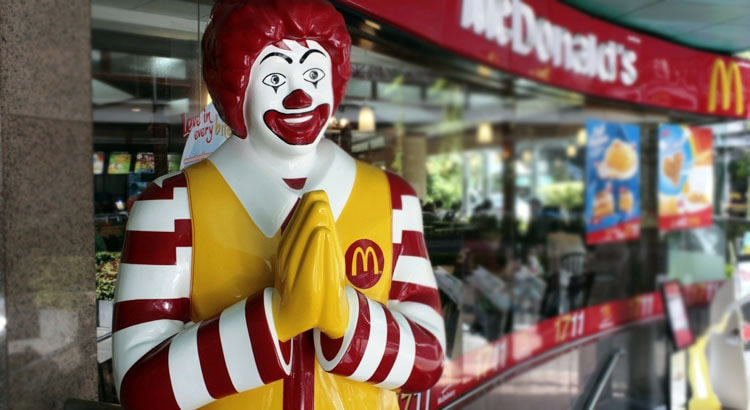
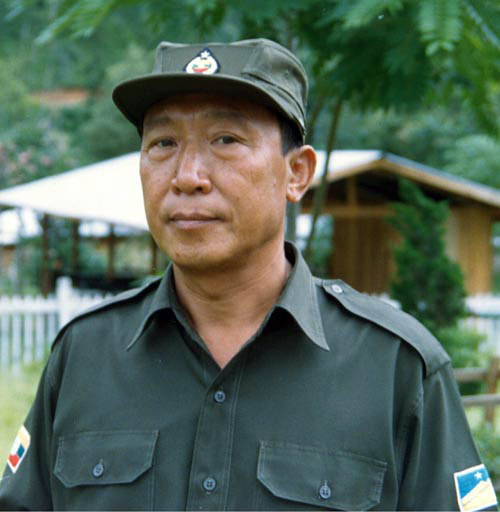
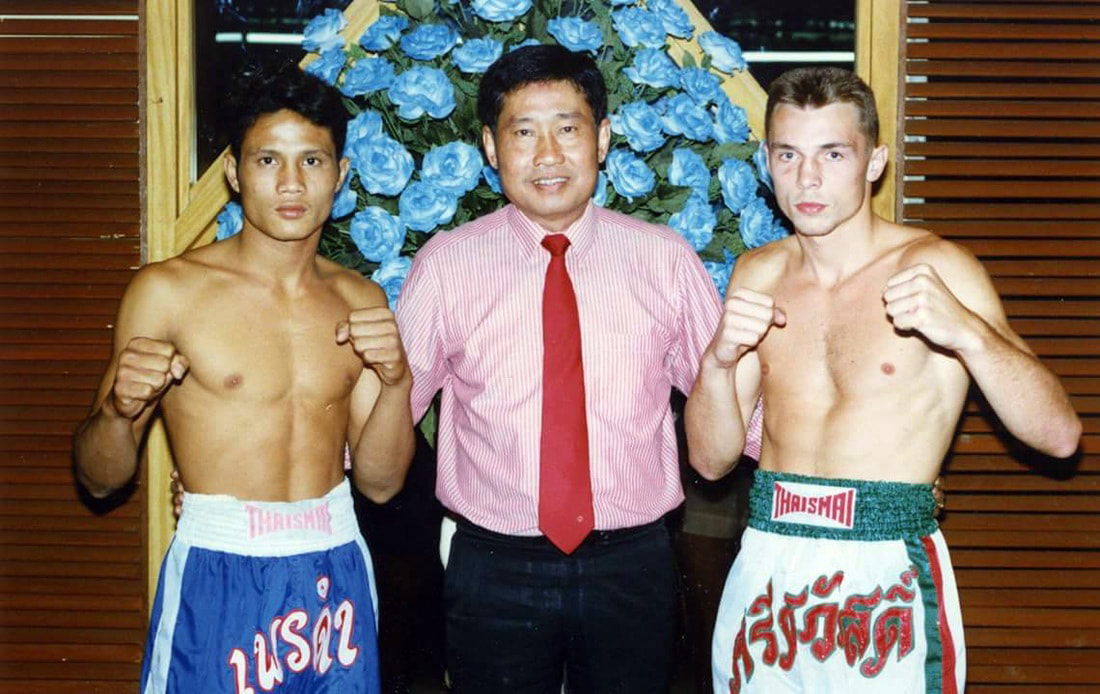
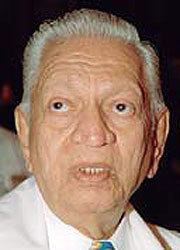
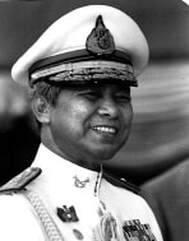
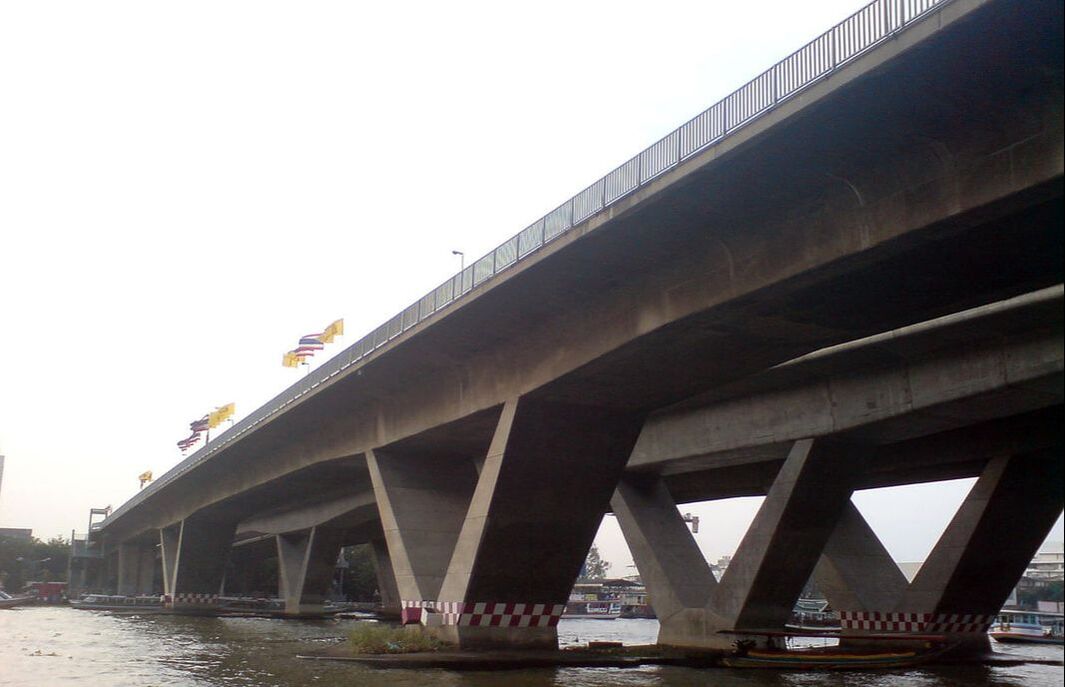
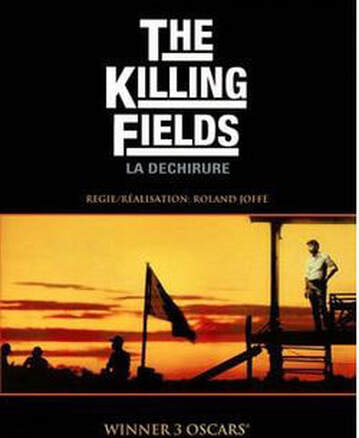
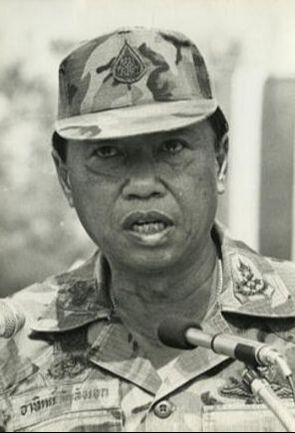
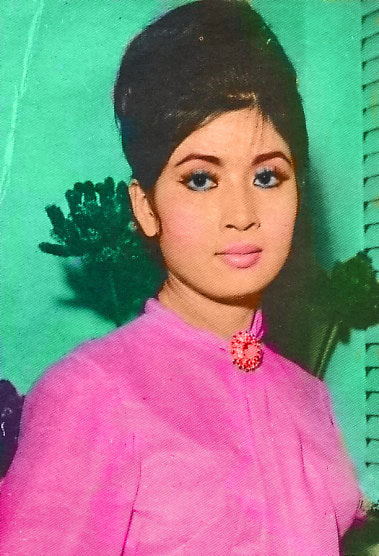
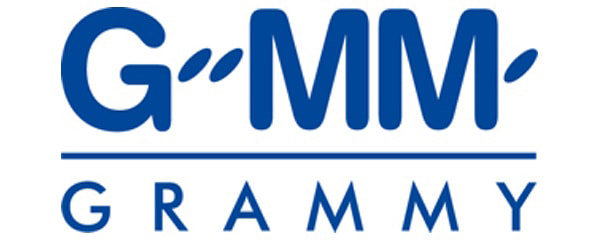
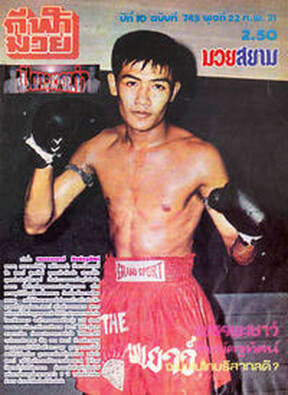
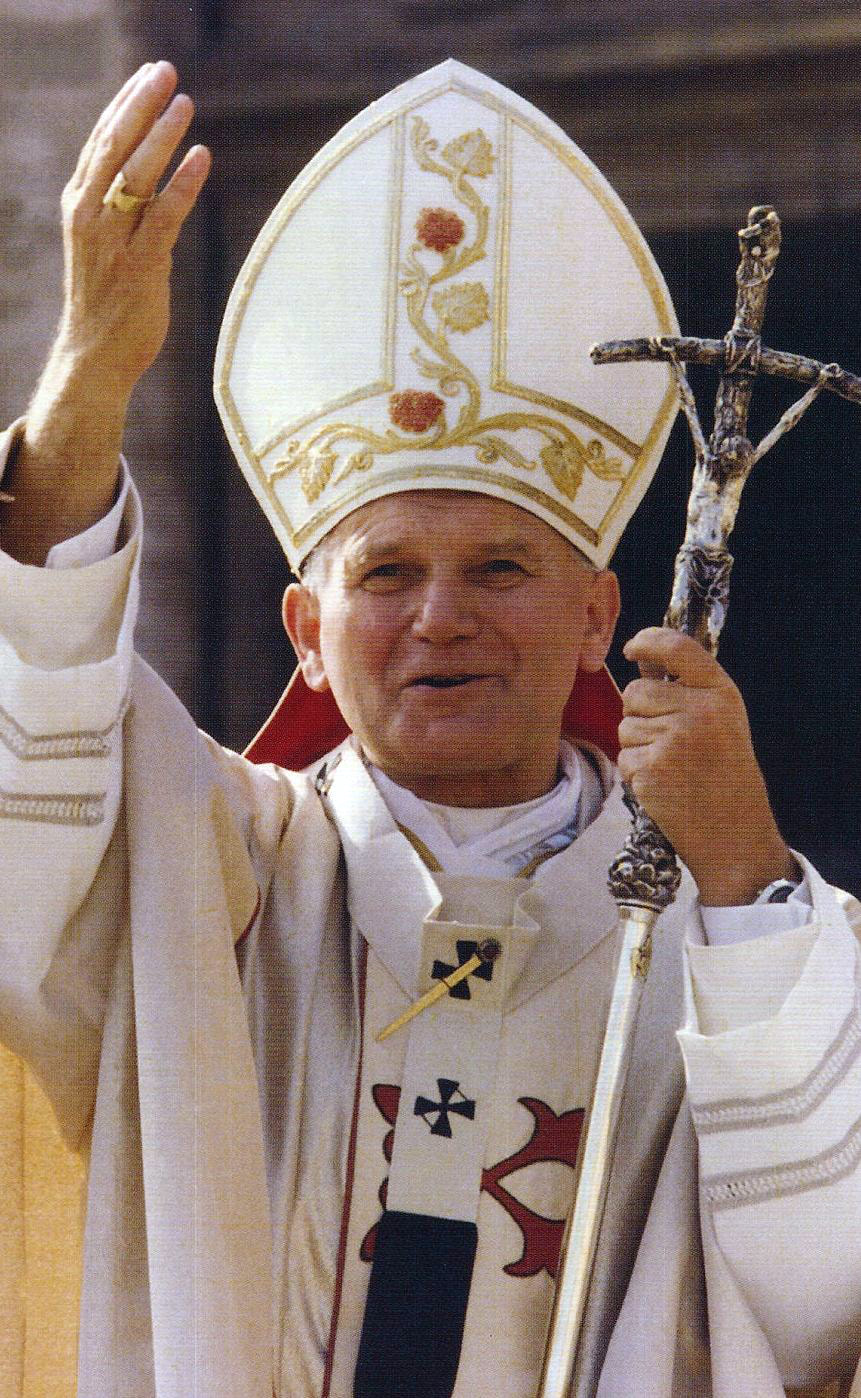
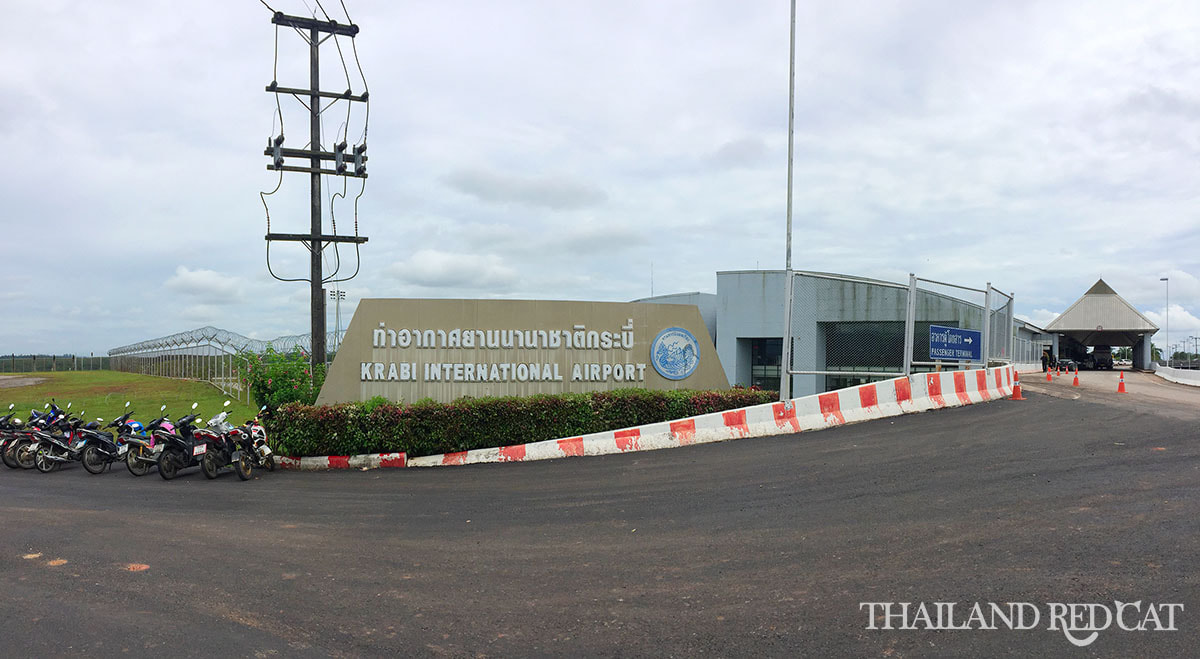
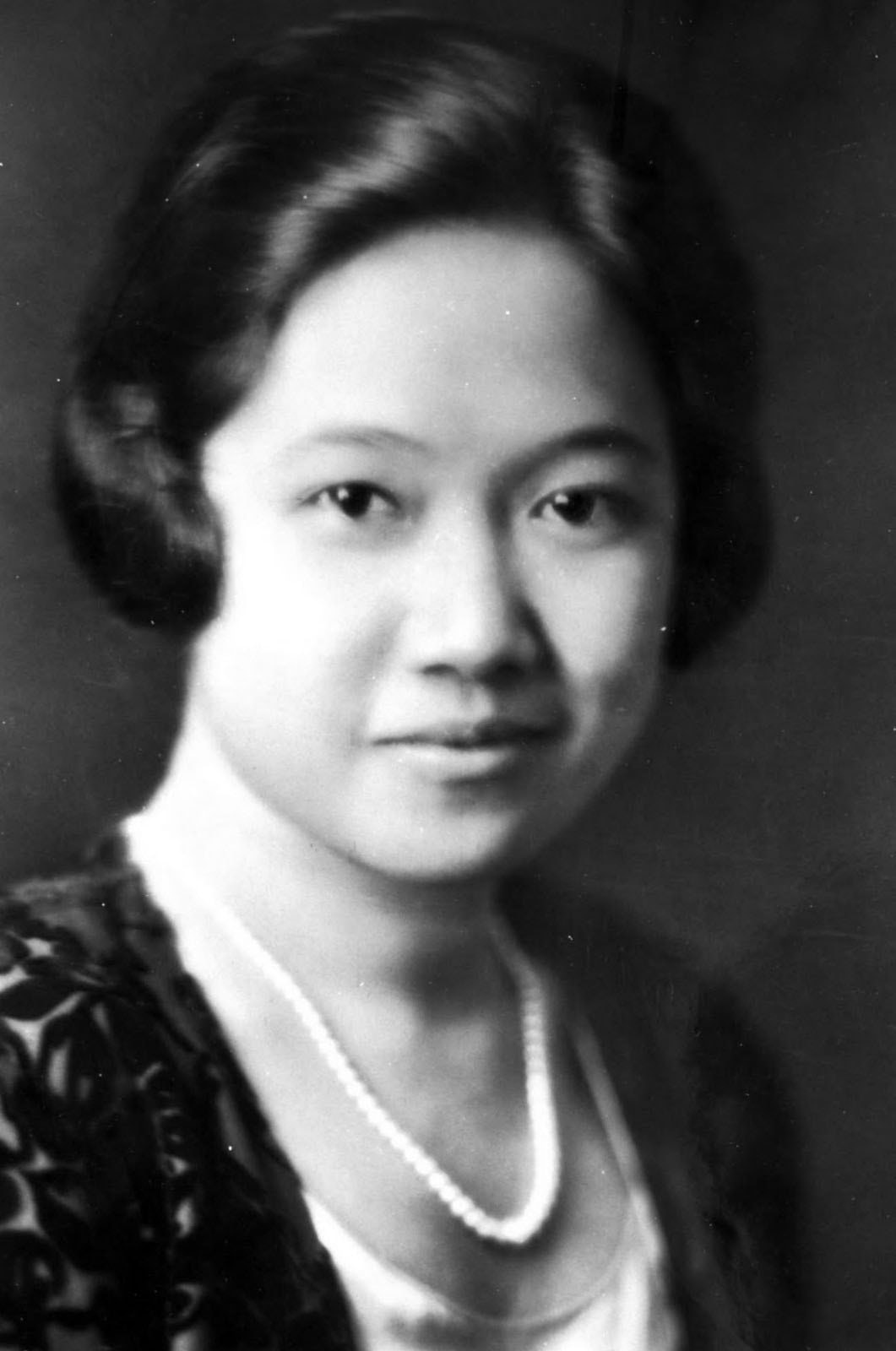
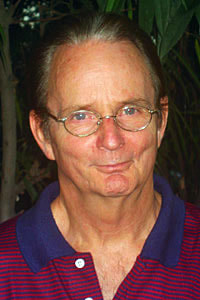
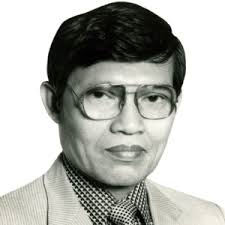
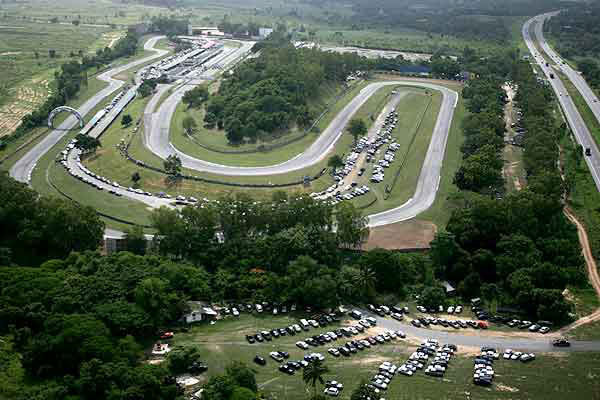
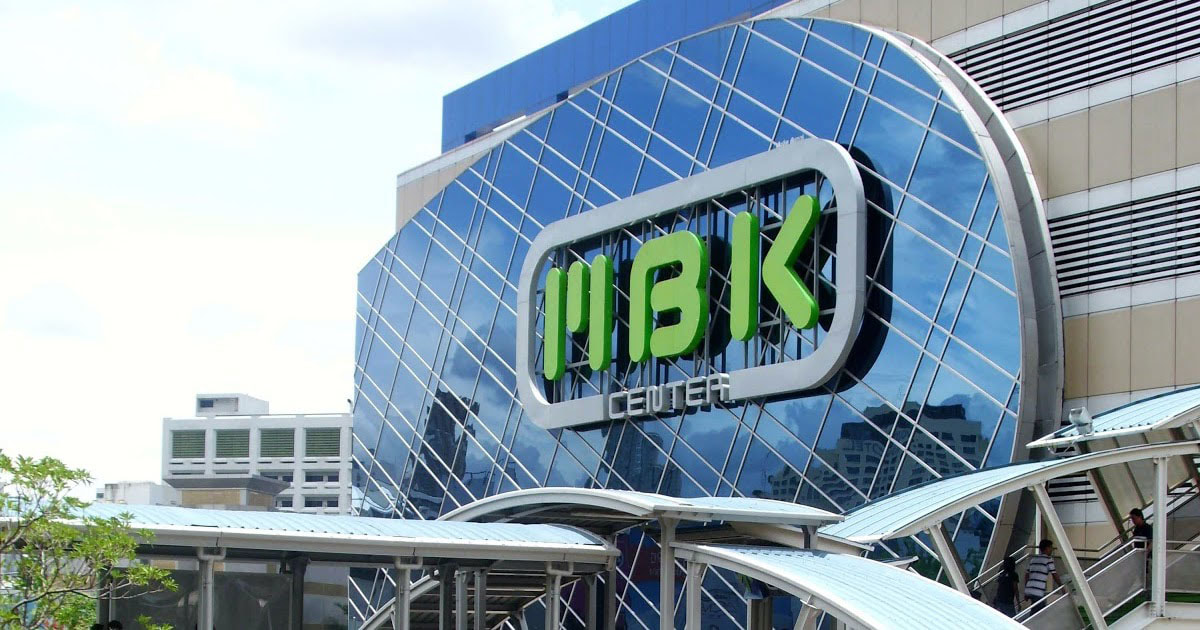
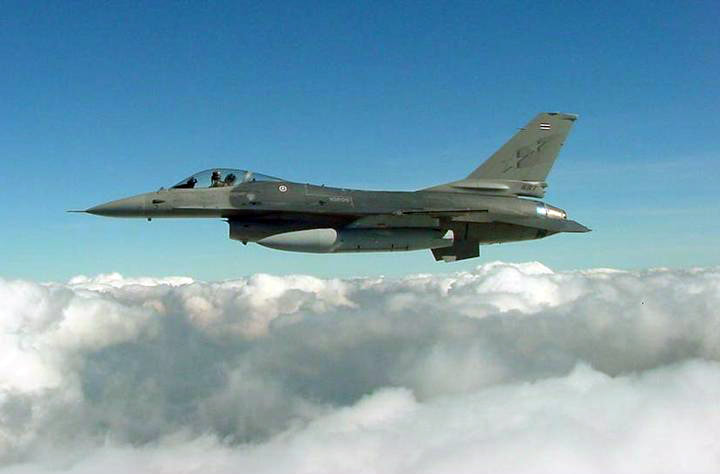
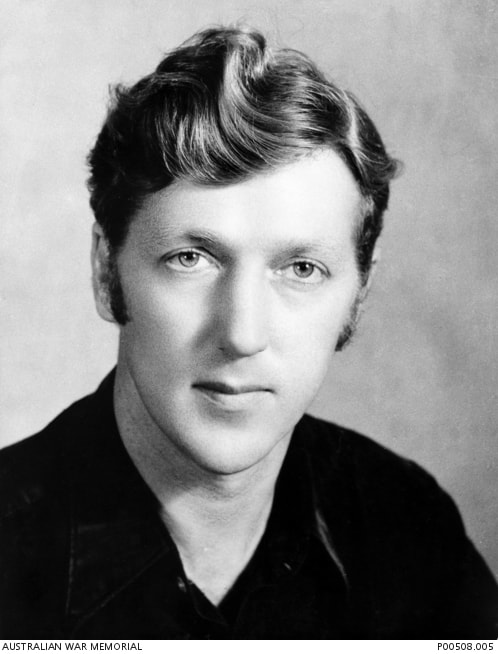
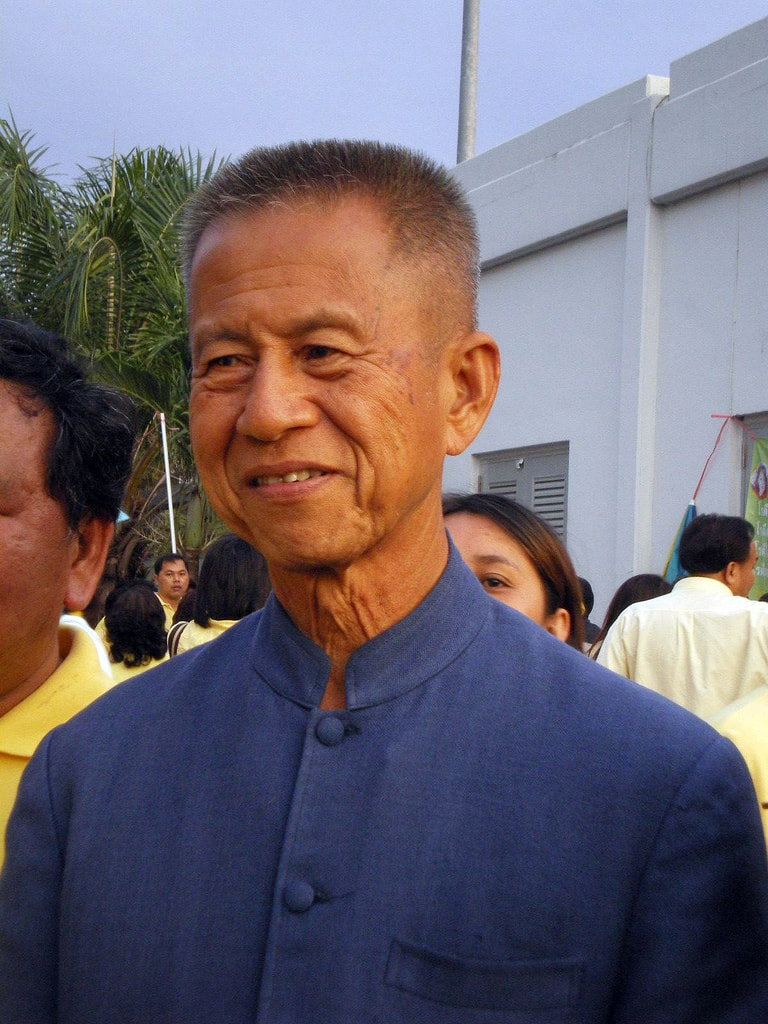
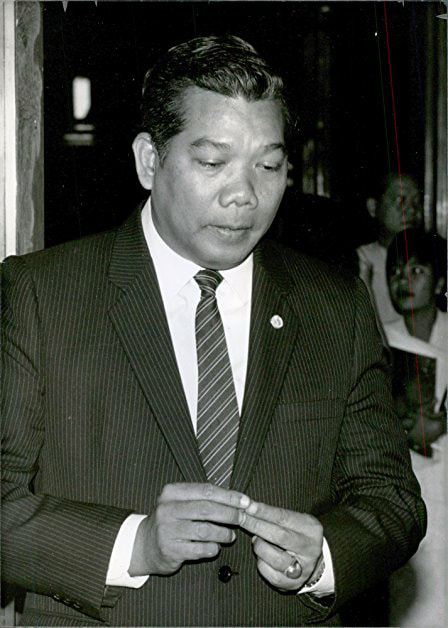
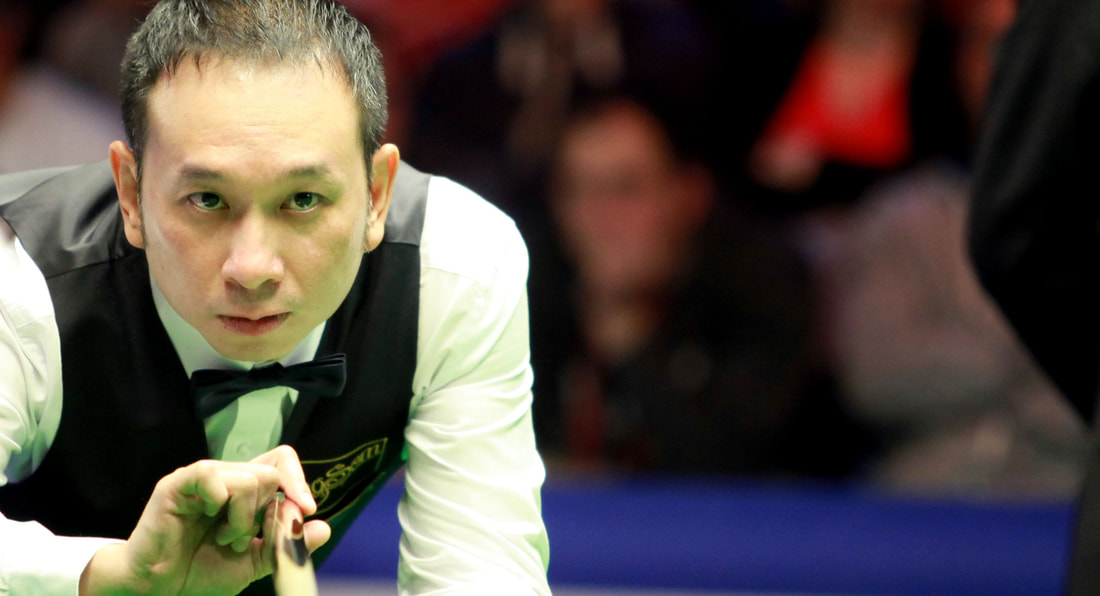
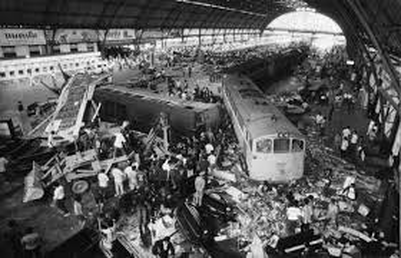
 RSS Feed
RSS Feed
















